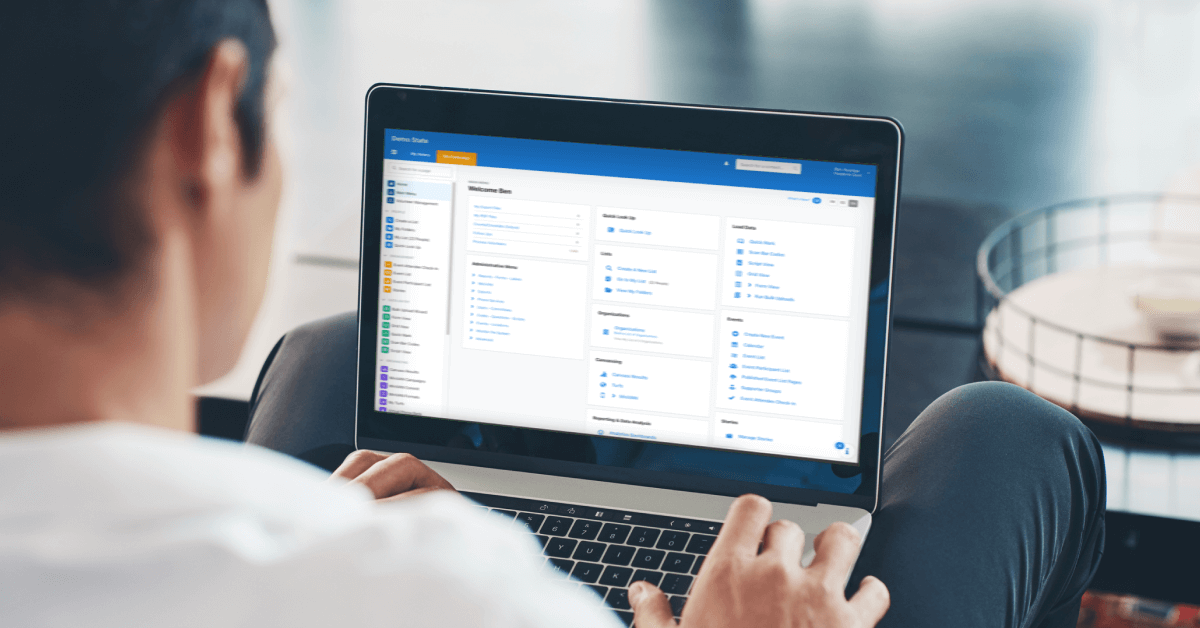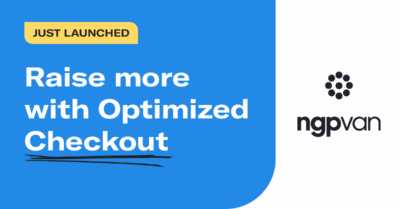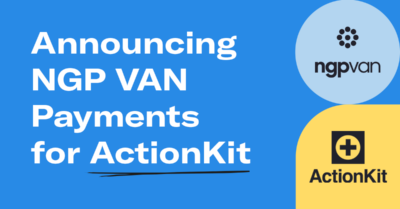The Ultimate Guide to CRMs for Political Campaigns

In the fast-paced world of political campaigns, staying organized and efficient is paramount to success. However, managing relationships with voters, volunteers, and other stakeholders can be a complex and time-consuming task. That’s where political constituent relationship management (CRM) systems come in.
Whether you’re looking to streamline your campaign’s operations, enhance voter targeting and engagement, or optimize your fundraising efforts, this guide will help you find a CRM that meets your specific goals.
What is a CRM for Political Campaigns?
A political CRM is a database designed to manage and enhance interactions with voters, volunteers, donors, and other stakeholders. It serves as a central repository for storing and organizing data related to a campaign, including contact information, donation history, volunteer activity, and other voter data.
How to Know if You Need a CRM for Political Campaigns
Without a political CRM, it can be difficult to keep track of supporter information, donations, event registrations, and volunteer activities throughout the busy election cycle. Especially when it’s time to get out the vote, you’ll want to make sure you contact every supportive volunteer and voter to help with your final push to win on Election Day.
Campaigns looking to run more efficient operations should consider investing in a CRM, as it can streamline the process of managing data, tracking interactions, and coordinating campaign activities.
The Benefits of Using a Political CRM
CRMs offer several benefits to political campaigns, including:
- Improved voter engagement: With a political CRM, campaigns can collect and store information about voter preferences, interests, and behaviors. This information can then be used to create tailored outreach and mobilization strategies that resonate with voters and inspire them to engage with your campaign.
- Enhanced efficiency: By tracking donations, interactions, volunteer activities, and event attendance, you can develop more comprehensive profiles to act on in the future. Using a centralized database also reduces the amount of time spent on data entry, allowing your team to focus on other strategic tasks like voter outreach, message refinement, and fundraising.
- Informed decision-making: CRM systems provide real-time insights into campaign performance and voter sentiment. Track key performance indicators (KPIs), such as contact rates and donation trends, then adjust your strategies based on what’s working well and what’s not.
Overall, as the political landscape evolves, a CRM will help your campaign remain organized, informed, and efficient.
5 Tips for Choosing the Right CRM for Your Political Campaign
Now that you have an understanding of what political CRMs are, you can begin researching and comparing different options on the market. Use these tips to guide your search:
1. Assess Your Campaign’s Needs and Goals
Goal setting is a critical first step when investing in new technology. Consider factors such as the size of your campaign, the number of supporters and donors you expect to manage, your most frequently used communication channels, and the level of customization required. Determine whether you need advanced data analytics, volunteer management capabilities, or integrations with other campaign tools like fundraising platforms.
Then, set clear and measurable objectives, such as a target for the amount of staff time saved, a percentage increase in volunteer engagement, or improved deliverability rates. These goals will serve as benchmarks for evaluating the effectiveness of the CRM system you choose.
2. Evaluate Integration Capabilities
Integrations facilitate a seamless exchange of information between your CRM and other software solutions, providing a unified view of your supporter’s information. Depending on your campaign goals, you may choose to integrate your CRM with:
- Fundraising software
- Volunteer management platforms
- Marketing tools
- Event management solutions
For the best results, ask if the CRMs you are evaluating offer integration with the software you need them to. Many CRMs offer API connections that can help automate processes and connect platforms to help you work more efficiently and effectively.
3. Prioritize Data Management Features
Certain CRM features are crucial for political campaigns due to the nature of the data involved. These features can include:
- Data validation tools: Validation tools help prevent errors, duplicates, and inconsistencies in your data, which can otherwise lead to inefficient campaigning, inaccurate reports, and a misallocation of resources.
- Strict security measures: Political campaigns deal with sensitive data that is not only subject to strict privacy laws but also highly valuable. A breach could lead to legal ramifications, damage your campaign’s reputation, and erode trust among supporters. Therefore, robust security features are non-negotiable.
- Reporting capabilities: Reports help organize and visualize important campaign data over time, which can be invaluable for post-campaign analysis and legal or compliance purposes.
If your team is struggling to find a CRM that has these must-have features, consider working with an external consultant. Consulting firms have specialized expertise in the political and advocacy space, which they can use to recommend systems that align with your goals.
4. Consider Scalability
When comparing political CRMs, prioritize a system that can adapt and grow alongside your campaign. For instance, a scalable CRM should be able to accommodate fluctuations in:
- Data: As the campaign grows, so does the volume of data, including voter, volunteer, and donor information. A scalable political CRM should be able to handle increasing amounts of data without performance degradation.
- Activities: The system needs to be able to manage large-scale operations, which can include an increase in phonebanking, canvassing, or fundraising.
- User accounts: A scalable CRM allows multiple users to work within the system at the same time. Invest in a system that also provides different access levels based on the roles and responsibilities of your campaign team.
Additionally, examine the CRM’s customization options to ensure that you can tailor the system to meet your campaign’s needs. For instance, you may require custom fields to track and analyze specific data for targeted fundraising or outreach efforts.
5. Review the Implementation Process
Before investing in a CRM, examine the implementation process to determine whether your team has the technical expertise or external support needed to deploy the software. Implementation generally involves:
- Configuration: Set up user roles and permissions to ensure secure access to sensitive data and establish workflow processes for tasks like email marketing, volunteer management, and fundraising.
- Data migration: Identify your data sources, which may include spreadsheets, existing databases, or integrated software. Next, use data mapping to match fields in your source data to the corresponding fields in the CRM, ensuring that information is correctly categorized.
- Training: Familiarize campaign staff and volunteers with the interface and provide hands-on training sessions that cover data entry, reporting, and campaign-specific workflows.
Reach out to the CRM’s customer support team to make sure that you’re on the same page about the anticipated timeline and ease of implementation. If you don’t have the technical expertise for some of the steps outlined above, ask if their team can help you bulk upload data, set up user permissions, and more to set your campaign up for success.
Next Steps: Consider the Leading Political CRM
A well-implemented CRM will help your campaign engage, mobilize, and encourage supporters to act like never before. As you weigh your options, consider the industry-leading CRMs offered by NGP VAN. Trusted by Democratic and progressive campaigns and causes nationwide, NGP VAN provides the best-in-class organizing, fundraising, and compliance software to help take your campaign to the next level.



